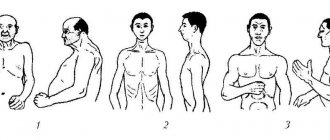Personality is a qualitative individual characteristic that combines stable and permanent mental properties that determine a person’s behavior and attitude. Literally, translated from Greek, character means a sign, a trait. Character in the structure of personality combines the totality of its various qualities and properties that leave an imprint on behavior, activity and individual manifestation. A set of essential, and most importantly, stable properties and qualities determine a person’s entire lifestyle and his ways of reacting in a given situation.
The character of an individual is formed, determined and formed throughout his entire life journey. The relationship between character and personality is manifested in activity and communication, thereby determining typical modes of behavior.
Personality Traits
Any trait is some stable and unchangeable stereotype of behavior.
Characteristic personality traits in a general sense can be divided into those that set the general direction for the development of character manifestations in the complex (leading), and those that are determined by the main directions (minor). Leading traits allow you to reflect the very essence of character and show its main important manifestations. We must understand that any character trait of a person will reflect the manifestation of his attitude to reality, but this does not mean that any of his attitudes will directly be a character trait. Depending on the individual’s living environment and certain conditions, only some manifestations of relationships will become defining character traits. Those. a person may react aggressively to a particular irritant of the internal or external environment, but this will not mean that the person is evil by nature.
In the character structure of each person, there are 4 groups. The first group includes traits that determine the basis of personality, its core. These include: honesty and insincerity, integrity and cowardice, courage and cowardice, and many others. The second includes traits that demonstrate an individual’s attitude directly towards other people. For example, respect and contempt, kindness and anger, and others. The third group is characterized by the individual’s attitude towards himself. It includes: pride, modesty, arrogance, vanity, self-criticism and others. The fourth group is the attitude towards work, activity or work performed. And it is characterized by such traits as hard work and laziness, responsibility and irresponsibility, activity and passivity, and others.
Some scientists additionally identify another group that characterizes a person’s attitude towards things, for example, neatness and sloppiness.
They also distinguish such typological properties of character traits as abnormal and normal. Normal traits are characteristic of people who have a healthy psyche, while abnormal traits include people with a variety of mental illnesses. It should be noted that similar personality traits can be considered both abnormal and normal. It all depends on the degree of expression or whether it is an accentuation of character. An example of this could be healthy suspicion, but when it goes off scale, it leads to paranoia.
The determining role in the formation of personality traits is played by society and a person’s attitude towards it. It is impossible to judge a person without seeing how he interacts with the team, without taking into account his attachments, dislikes, comradely or friendly relations in society.
An individual's attitude towards any type of activity is determined by his relationships with other persons. Interaction with other people can encourage a person to be active and rationalize, or keep him in tension and give rise to his lack of initiative. An individual's idea of himself is determined by his relationships with people and his attitude to activity. The basis in the formation of personality consciousness is the direct relationship to other individuals. A correct assessment of another person’s personality traits is a fundamental factor in the formation of self-esteem. Also, it should be noted that when a person’s activity changes, not only the methods, methods and subject of this activity change, but also the person’s attitude towards himself in the new role of an actor changes.
Teachings of Erich Fromm
Erich Fromm, a German sociologist and philosopher, argued that the type of human activity is determined by his considerations and living conditions, considerations, in turn, are determined by the structure of the personality. According to his teaching, several types of social character can be distinguished.
Receptive (passive or masochistic)
Beliefs: the source of all benefits is external, it is impossible to create anything on your own, the only way to achieve what you want is to resort to outside help.
Characteristics: they try to resort to the help of others, are extremely irresponsible, in case of failures they shift the blame onto someone else, are highly dependent on authority figures in their social circle, and never occupy leading positions.
Social relationships: they want to be loved, but do not want to love themselves, are not proactive, dependent.
Exploitative (sadistic)
Beliefs: the source of all benefits is in the external environment, it is impossible to achieve what you want on your own, you cannot create something yourself, but you can steal and recycle someone else’s.
Characteristics: they achieve what they want through manipulation and cunning, impose their life beliefs on others, do not tolerate dissent, are easy to work with and are very productive in their field of activity.
Social relationships: interested only in those who need to be conquered or “recaptured”, strive to take a leading position, extremely sociable, but often hostile; They evaluate others according to their degree of usefulness, they are cynics, they treat new acquaintances with suspicion, they are envious of the successes of others and are very jealous.
Hoarding (acquisitive, destructive)
Beliefs: it is impossible to create - you need to protect and save what you already have, they strive to get as much as possible and give as little as possible.
Characteristics: their home is their main fortress, which they strive to make as comfortable as possible by placing a huge number of things there, they try to restore order everywhere, they do not like change.
Social relationships: they are always under someone’s control, rarely take initiative, are silent and think a lot, structuring and analyzing thoughts, they are stingy with emotions and do not like conflicts.
Market (conformist)
Beliefs: success depends on the ability to present oneself correctly; everyone, including themselves, is a commodity with which they must compete.
Characteristics: they follow the “demand” and quickly adapt to the latest trends, losing their individuality in the process, often adopting the images that are broadcast by the media, and often sacrifice their self-esteem.
Social relationships: they ask the price of others, strive to make useful acquaintances, do not tolerate criticism and other threats to self-esteem, are often unsure of themselves, rarely experience real feelings - they neither love nor hate, do not become attached to anyone and do not value anyone, easily break up communications.
Perceiver
Beliefs: It is impossible to create on your own, but it is possible to help others create.
Characteristics: dependent on others, lack individuality, often live someone else’s life.
Social relationships: sociable, sincerely happy about the successes of others, talk a lot and laugh loudly, always have a large social circle.
Necrophiliac
Beliefs: they don’t think about creation, life is a tragedy.
Characteristics: extremely destructive, prone to depression, have a flexible psyche, and are often religious fanatics or ardent adherents of radical movements.
Social relationships: dependent on other people, suggestible.
Social (sociophilic)
Beliefs: development is the main task of life; they can either create it independently or help others in this.
Characteristics: mature, harmonious individuals, attentive to details, strive to study the world around them, do not oppose themselves to society, but also do not strive to meet its requirements, are aware of their strengths.
Social relationships: they love people, are patient, strive to surround loved ones with care, in the process of their development they try to involve others in the development.
Personality traits
The main feature of character in the personality structure is its certainty. But this does not mean dominance of one trait. Several traits, contradicting or not contradicting each other, can dominate a character. Character can lose its definition in the absence of clearly defined traits. The system of moral values and beliefs of an individual is also a leading and determining factor in the formation of character traits. They establish the long-term direction of individual behavior.
The character traits of an individual are inextricably linked with his stable and deep interests. The lack of integrity, self-sufficiency and independence of the individual is closely related to the instability and superficiality of the individual’s interests. And, conversely, a person’s integrity and purposefulness and perseverance directly depend on the content and depth of his interests. However, similarity of interests does not yet imply similarity of characteristic personality traits. For example, among scientists you can meet both cheerful and sad people, both good and evil.
To understand the characteristics of a person’s character, one should also pay attention to his affections and leisure time. This can reveal new facets and characteristics of character. It is also important to pay attention to the compliance of a person’s actions with his established goals, because an individual is characterized not only by actions, but also by how exactly he produces them. The direction of activity and the actions themselves form the dominant spiritual or material needs and interests of the individual. Therefore, character should be understood only as the unity of the image of actions and their direction. It is on the combination of personality traits and his properties that a person’s real achievements depend, and not on the presence of mental capabilities.
Character anomalies
Character anomalies are said to exist if a person’s actions make communication difficult and impossible. Psychotherapists identify several types of behavioral abnormalities.
Excitable psychopaths suffer from a lack of inhibition of nervous processes. Any little thing makes them angry; in a state of passion, they threaten their interlocutor and try to get hurt. They are not capable of long-term work, because they are torn apart by “internal irritation.”
The asthenic type of anomaly is a rapid depletion of mental reactions. Such people are shy, have a hard time withstanding troubles, and at the slightest cough/runny nose they fear for their health and become helpless.
Paranoid type - nervous processes are inhibited, stagnant foci of excitation are formed. Such people are touchy and suspicious - and are always fixated on themselves. They remember negative situations towards themselves for a long time and demand restoration of justice.
Temperament and personality
The relationship between character and personality is also determined by the individual’s temperament, abilities and other aspects. And the concepts of temperament and personality form its structure. Character is a set of qualitative properties of an individual that determine his actions, manifested in relation to other people, actions, and things. Whereas temperament is a set of mental properties of an individual that influence his behavioral reactions. The nervous system is responsible for the manifestation of temperament. Character is also inextricably linked with the individual’s psyche, but its traits develop throughout life under the influence of the external environment. And temperament is an innate parameter that cannot be changed, you can only restrain its negative manifestations.
The prerequisite for character is temperament. Temperament and character in the personality structure are closely interrelated with each other, but at the same time they are different from each other.
Temperament embodies mental differences between people. It varies in depth and strength of manifestations of emotions, activity of actions, impressionability and other individual, stable, dynamic characteristics of the psyche.
We can conclude that temperament is the innate foundation and basis on which the personality is formed as a member of society. Therefore, the most stable and permanent personality traits are temperament. It manifests itself equally in any activity, regardless of its focus or content. Remains unchanged in adulthood.
So, temperament is the personal characteristics of an individual, which determine the dynamism of his behavior and mental processes. Those. The concept of temperament characterizes the pace, intensity, duration of mental processes, external behavioral reaction (activity, slowness), but not conviction in views and interests. It also does not determine the value of an individual and does not determine its potential.
There are three important components of temperament that relate to the general mobility (activity) of a person, his emotionality and motor skills. In turn, each of the components has a rather complex structure and is distinguished by various forms of psychological manifestation.
The essence of activity lies in the individual’s desire for self-expression and transformation of the external component of reality. At the same time, the very direction, the quality of implementation of these trends is determined precisely by the characterological characteristics of the individual and not only. The degree of such activity can range from lethargy to the highest manifestation of mobility - constant rise.
The emotional component of a person’s temperament is a set of properties that characterize the characteristics of the course of various feelings and moods. This component is the most complex in its structure compared to the others. Its main characteristics are lability, impressionability and impulsiveness. Emotional lability is the speed with which one emotional state is replaced by another or ceases. Sensibility is understood as the subject’s susceptibility to emotional influences. Impulsivity is the speed with which emotion turns into the motivating reason and force of actions and deeds without first thinking them through and making a conscious decision to carry them out.
The character and temperament of a person are inextricably linked. The dominance of one type of temperament can help determine the character of subjects as a whole.
A social person is one who is defined as “normal”
Psychology does not use the concept of norm as such, but a simple everyday designation for any social person is normal.
That is, returning to terminology, this is a sane person who accepts the basic moral and social norms of the society around him. He follows rules that enable him to gain a reputation as a respected member of this society and to communicate without difficulty with other people. He is ready to take responsibility for the consequences of his actions and tries to act in such a way as not to harm himself and others. It is important for him to be recognized, appreciated, and to enter into various types of communication with him.
To put it even more simply, social people strive to study, work, have a personal life, make and maintain acquaintances, achieve the respect of others and success in areas of activity that are important to them.
Personality types
Today in the specific literature there are many criteria by which personality types are determined.
The typology proposed by E. Kretschmer is now the most popular. It consists of dividing people into three groups depending on their physique.
Picnic people are people who tend to be overweight or slightly overweight, short in stature, but with a large head, wide face and short neck. Their character type corresponds to cyclothymics. They are emotional, sociable, and easily adapt to a variety of conditions.
Athletic people are tall and broad-shouldered people, with well-developed muscles, a resilient skeleton and a powerful chest. They correspond to the ixothymic type of character. These people are powerful and quite practical, calm and unimpressive. Ixothymic people are restrained in their gestures and facial expressions and do not adapt well to changes.
Asthenic people are people who are prone to thinness, their muscles are poorly developed, their chest is flat, their arms and legs are long, and they have an elongated face. Corresponds to the schizothymic character type. Such people are very serious and prone to stubbornness, and have difficulty adapting to change. Characterized by isolation.
K.G. Jung developed a different typology. It is based on the predominant functions of the psyche (thinking, intuition). His classification divides subjects into introverts and extroverts depending on the dominance of the external or internal world.
An extrovert is characterized by directness and openness. Such a person is extremely sociable, active and has many friends, comrades and just acquaintances. Extroverts love to travel and get everything out of life. An extrovert often becomes the initiator of parties; in companies, he becomes their soul. In ordinary life, he focuses only on circumstances, and not on the subjective opinion of others.
An introvert, on the contrary, is characterized by isolation and turning inward. Such a person isolates himself from the environment and carefully analyzes all events. An introvert has a hard time making contact with people, so he has few friends and acquaintances. Introverts prefer solitude to noisy companies. These people have an increased degree of anxiety.
There is also a typology based on the relationship between character and temperament, which divides people into 4 psychotypes.
A choleric person is a rather impetuous, fast, passionate and at the same time unbalanced person. Such people are subject to sudden mood swings and emotional outbursts. Cholerics do not have a balance of nervous processes, so they quickly become exhausted, thoughtlessly wasting their strength.
Phlegmatic people are distinguished by equanimity, unhurriedness, stability of moods and aspirations. Outwardly, they practically do not show emotions and feelings. Such people are quite persistent and persistent in their work, while always remaining balanced and calm. The phlegmatic person compensates for his slowness in work with diligence.
A melancholic person is a very vulnerable person, prone to stable experiences of various events. A melancholic person reacts sharply to any external factors or manifestations. Such people are very impressionable.
A sanguine person is a mobile, active person with a lively character. He is subject to frequent changes of impressions and is characterized by rapid reactions to any events. We can easily relate to the failures or troubles that befell him. When a sanguine person is interested in his work, he will be quite productive.
Also, K. Leonhard identified 12 types, often found in people with neuroses, accentuated characters. And E. Fromm described three social types of characters.
Accentuation of character
Not all character traits are developed equally in a person. He can be honest, kind, and moderately fair, but all his qualities are dominated by touchiness, which is so hypertrophied that it borders on psychopathy.
The state of character when one or more traits dominate over others and are developed to the limit is called accentuation. Predominant qualities become a person’s “Achilles heel” in his relationships with other people.
Types of character accentuation according to K. Leonhard
Karl Leonhard described 12 types of character accentuation, which are associated with temperament, social conditions, and personality traits.
By temperament
Hyperthymic type - increased activity to the detriment of efficiency and performance of one's duties. It is difficult for a hyperthymic person to sit still and finish the job he has started. He is overly sociable, prone to sociopathy, alcoholism, and drug addiction.
Affectively labile type - a person, as if on a swing, changes the hyperactivity of his behavior to a state of depression and pessimism.
Dysthymic type - depressed mood and weakness of the volitional sphere. People with this type of accentuation are pessimists, have low self-esteem, and are not inclined to communicate. Positive traits include a heightened sense of justice and conscientiousness.
Affective-exalted type - high intensity of mental processes is expressed in violent delight and exalted states. Increased ability to sympathize and empathize. Very attached to family and friends.
Anxious type - people who are unsure of themselves, fearful, and have difficulty making contact. They do not know how to stand up for themselves and are often offended. Positive aspects - self-demandingness, responsibility.
Emotive type - hypersensitive, deeply emotional individuals who are not prone to conflicts. They have a soft heart, are responsive, do not express grievances, but conceal them deeply within themselves.
Socially conditioned
Demonstrative type - people prone to intrigue and lies. Their main goal is to be the center of attention; they are artistic, energetic, and sociable. They lie in order to increase their price, to attract attention to their person.
Stuck type - they remember grievances and evil for a long time, “get stuck” on these feelings, prolong conflicts, complicate reconciliation, and persistently pursue their goals.
Pedantic type - people of this type are infuriated by any violation of order, they themselves are neat and clean - they demand the same from those around them.
Excitable type - people who do not know how to control themselves and their emotions. They often get angry, start conflicts, and are unable to do systematic work or study. For their own self-affirmation, excitable individuals choose an environment of weak people.
Personal
Extroverts are focused on the values of the outside world, sociable, energetic, susceptible to the influence of others, and do not have strong beliefs.
Introverts live on “their own wavelength,” in a fictional world, are not inclined to communicate, seclude themselves, and do not show their experiences to anyone. In the real world they are indecisive and act slowly.
Types of accentuation according to A. Lichko
A. Lichko’s classification was developed for adolescence, when character accentuation is usually formed.
Hyperthymic type. Character strengths: sociability, optimism, energy. Disadvantages: frivolity, lack of discipline, tendency to immoral actions.
Cycloid type. With such accentuation, the phase of increased activity gives way to a phase of depression, when the teenager is overwhelmed by irritability or oppressed by apathy. In this state, suicide attempts are possible. Waves of activity and depression are noticeable both for the teenager himself and for his loved ones.
Asthenoneurotic type. A person suffers from hypochondria - he is always in a painful state, constantly undergoing treatment, and gets tired of everything.
Sensitive type. A person with a sympathetic, kind character. Accentuation is expressed in excessive anxiety, fear of new contacts, and shyness.
Psychasthenic type. This includes teenagers with increased reflexivity, suspicious, and prone to phobias. They are afraid of uncertainty, uncertainty about their future. They are punctual, like to think through everything and calculate in advance. Careful to the point of nausea.
Psychological character of personality
Everyone has long known that significant changes occur in the psychological character of an individual in the process of its development and life activity. Such changes are subject to typical (natural) and atypical (individual) trends.
Typical trends include changes that occur in psychological character as a person grows older. This happens because the older an individual becomes, the faster he gets rid of childish manifestations in character, which distinguish childish behavior from adult behavior. Childhood personality traits include capriciousness, tearfulness, fears, and irresponsibility. Adult traits that come with age include tolerance, life experience, rationality, wisdom, prudence, etc.
As an individual moves along the path of life and gains life experience, changes occur in their views on events, and their attitudes towards them change. Which together also influences the final formation of character. Therefore, there are certain differences between people of different age groups.
For example, people between the ages of approximately 30 and 40 live mainly in the future; they live in ideas and plans. All their thoughts, their activities are aimed at realizing the future. And people who have reached 50 years of age have approached the point where their present life meets simultaneously with their past life and their future. And therefore, their character is modified in such a way as to correspond to the present. This is the age when people completely say goodbye to their dreams, but are not yet ready to be nostalgic for the years they have lived. People who have passed the 60-year mark practically no longer think about the future; they are much more concerned about the present, and they have memories of the past. Also, due to physical ailments, the previously taken pace and rhythm of life is no longer available to them. This leads to the appearance of such character traits as slowness, measuredness, and tranquility.
Atypical, specific tendencies are directly related to events experienced by a person, i.e. conditioned by past life.
As a rule, character traits that are similar to existing ones are consolidated much faster and appear much faster.
You should always remember that character is not an immutable quantity; it is formed throughout a person’s entire life cycle.
Character Formation
A person’s character develops in a specific period of life under the influence of certain factors. Which ones?
Time frame
Character formation is a time-limited process that spans childhood and adolescence—up to 20–25 years. Later we will talk about re-education, which is given with great difficulty. By the age of 4–5 years, the “skeleton of personality” is already ready - the child’s behavior towards himself, towards people, towards work and surrounding objects has been determined in general terms. Educators can see the peculiarities of the manifestation of his mental qualities: mental abilities, emotional-volitional sphere, moral attitudes.
Social character of personality
Individuals of any society, despite their individual personal characteristics and differences, have common psychological manifestations and properties, and therefore act as ordinary representatives of a given society.
The social character of a person is a general way of adapting a person to the influence of society. It is created by religion, culture, education system and family upbringing. It should also be taken into account that even in a family, a child receives an upbringing that is approved in a given society and corresponds to the culture, which is considered normal, ordinary and natural.
According to E. Fromm, social character means the result of a person’s adaptation to a particular way of organizing society, to the culture in which he is brought up. He believes that none of the known developed societies in the world will allow the individual to fully realize himself. From this it turns out that the individual from birth is in conflict with society. Therefore, we can conclude that the social character of an individual is a kind of mechanism that allows an individual to exist freely and with impunity in any society.
The process of adaptation of an individual in society occurs with a distortion of the character of the individual himself and his personality, to the detriment of it. According to Fromm, social character is a kind of defense, an individual’s response to a situation that causes frustration in the social environment, which does not allow the individual to freely express himself and fully develop, placing him obviously within limits and limitations. In society, a person will not be able to fully develop the inclinations and capabilities inherent in him by nature. As Fromm believed, social character is instilled in the individual and has a stabilizing character. From the moment an individual begins to have a social character, he becomes completely safe for the society in which he lives. Fromm identified several options of this nature.
Ticket 43. Social character: basic functions and types (Fromm). National character.
Like individual character, "social character" may be defined as the specific manner in which energy is directed in a particular direction; it follows that if the energy of the majority of the people of a given society is channeled in the same direction, then they have the same motivation, and, moreover, they are receptive to the same ideas and ideals. In the following pages I will try to show that "social character" is the basic element in the functioning of society and at the same time it is the transmission belt between the economic structure of a society and the ideas prevailing in it.
What is social character? With this concept I refer to the core structure of character that is common to most members of a given culture, as opposed to the individual character that makes people of the same culture different from each other. The concept of social character is not statistical, i.e. it is not simply the sum of the character traits that can be found in most members of a given culture. It can only be understood in connection with the function of a social nature, which we now begin to discuss.
Social function
Since the behavior of an individual must meet the requirements of society, Fromm believes that the main function of the social character is to “direct the activity of members of society in such a direction when their behavior is not the result of a consciously deliberate decision to follow or not to follow the social standard, but is a consequence of the desire to act as they should act, while at the same time receiving satisfaction from the fact that their behavior corresponds to the requirements of society.” In other words, the function of a social character is “to transform and channel the human energy of a given society for the purpose of its continuous functioning.”
“Character is a specific form of human energy that arises in the process of dynamic adaptation of human needs to a certain way of life in a certain society” (E. Fromm). The subjective function of a social nature is to direct a person’s actions in accordance with his practical needs and give him psychological satisfaction from the activity performed. By adapting to social conditions, a person develops in himself traits that encourage him to want to act this way and not otherwise.
Types of social character
1.Receptive non-fruitful orientation
(receptive character structure). A person of this type imagines that all benefits come from outside. In his opinion, the only way to get what you want is to get it from such an external source. Material things, love, knowledge, pleasure - everything is expected from the people around you.
With this orientation, a person wants to be loved, and not to love himself. Intellectually, he tends to perceive ideas but not create them. His first thought is to find someone who will provide the information he needs without making the slightest effort on his own. If this is a religious person, he expects everything from God and does nothing.
People with a similar character structure need others to provide them with security and the necessary benefits, so they easily become dependent and agree. They feel lost when left to their own devices because they believe that they are unable to do anything without help.
They try to overcome anxiety and depression by overeating and drinking alcohol. At the same time, they believe that life and the people around them should give them everything good. They are generally optimistic and friendly, although they become confused and panicked if there is a threat of losing their source of income and care. They are often cordial to others and want to help them, but act in ways to gain favor with people.
2. Exploitative orientation
. People of this type also believe that all the necessary goods are in the external environment and nothing can be created by oneself, but they do not believe that you will receive anything as a gift from others. In their opinion, what they want must be taken away by force or cunning, taken away. They feel attraction only to those whom they take away from another person. Ideas are not produced, but borrowed or stolen (plagiarism, paraphrase).
What they take from others always seems better to them than what they themselves created. They use and exploit anyone from whom they can squeeze something. Their motto is: “The stolen fruit is the sweetest.” The attitude of people of this type is hostile, they are prone to manipulating others, cynical, suspicious, envious and jealous. They view each person as an object of exploitation and evaluate him according to his usefulness.
3.Cumulative orientation.
A person with such a character structure does not believe that he will receive anything new from the outside world, so he must protect and save what he has. It is as if he surrounds himself with a protective wall, and the main goal is to collect as much as possible in his shelter and give as much as possible from there.
He strives to completely take possession of his loved one, considering him as his property. In everyday life he is a money-grubber, greedy, prone to over-economy and pedantic neatness. A money-grubber always has his thoughts, feelings, and memories in order; he can't stand it if things are out of place. Manic cleanliness is an expression of the need to withdraw from contact with the outside world; things outside his own world are perceived as dangerous and unclean.
If the outside world is perceived as a source of danger, stubbornly standing your ground is the response to a threat from the outside. Therefore, these people are stubborn, suspicious, intractable, keep aloof, or strive to completely possess another person. Their slogan is: “What’s mine is mine, and what’s yours is yours.”
4. Market orientation
. It appeared as dominant only in the modern era with the development of a market society. The character orientation, rooted in the perception of oneself as a commodity, and one’s own value as an exchange value, is called market. Material success in a modern market society depends on the recognition of a person by those who pay for services or hire people for a salary.
Success depends on how well a person is able to sell himself on the market, how to present himself as attractively as possible, that is, the individual begins to perceive himself as a commodity. Everyone is required to have a certain type of personality, which, regardless of the person’s needs, must satisfy one condition - to be in demand. He needs to enter into competition with many others, he cares not about his life and happiness, but about becoming a sought-after commodity, and for this he needs to know what type of personality is in high demand. Cinema and fashion form the image of the desired personality, which every person of the market type tries to embody.
5. Fromm contrasts the character types described above with a fruitful orientation
, which is the goal of human development. A fruitful orientation of the individual means a fundamental attitude, a way of relating in all spheres of experience. This is the ability to use one’s strengths and realize the possibilities available to a person. Such a person is guided in his actions by reason: he needs to know his strengths and where to apply them.
The concepts fruitful and active do not coincide. It is possible to be active in a state of hypnosis, but this is not fruitful, since in this case a person is driven to activity by forces beyond his control. You cannot talk about fruitfulness if a person is active, active, but is under the influence of some authority, acting in accordance with his desires. In this case he feels and does only what he is supposed to feel and do, and his activity depends not on his own mental or emotional state, but on an external source.
Fruitfulness presupposes the presence of a healthy mature personality, the ability to penetrate into the depths of phenomena with the power of reason and cognize their essence, to destroy the wall that separates one person from another with the power of love, to understand oneself, one’s purpose, which distinguishes a given person from others and makes him who he is. There is. This is the desire to become who he is potentially, the development of his own strengths, abilities and capabilities.
The term "national character" is not analytical but descriptive; it appeared initially in travel literature in order to express the specificity of the lifestyle of a particular people. One author, speaking about national character, means temperament, the characteristics of the emotional reactions of the people. The other focuses on social orientations, moral principles, attitudes towards power, work, etc. But these are completely different things.
National character also implies the properties not of an individual, but of an entire human group, often very numerous. This group shares a common culture, symbols, customs, etc. But is it possible to draw a conclusion from the commonality of culture about the commonality (and specificity) of the mental makeup of the individuals who make up a nation (nationality, ethnic group)? If some Western sociologists reduce the problem of national character to the mental properties of individuals, others, on the contrary, completely deny the applicability of psychological methods to its study. For example, Pitirim Sorokin wrote that the properties of the individual parts of a car are not identical to the properties of the whole car as an organized system; The properties of the human body as a system cannot be understood by studying its individual organs or cells. In the same way, the properties of a socio-cultural system cannot be understood by limiting oneself to the study of individual members of society. On this basis, Sorokin considered a psychological study of national character to be fundamentally impossible2.
Bottom line
Personality character often helps in understanding the personality itself, since everything revolves around its inner world, which has manifestations in the form of reactions, emotions, behavior, actions and even achievements that are currently available. Considering the different character types can lead to the following result - understanding people quickly and easily.
Character is a flexible characteristic that can be changed at any time. It can change both unconsciously and under the influence of the willpower of a person who controls the manifestation of a particular quality. The longer a person exhibits a particular quality, the more it is consolidated and becomes one of his characteristics that influences the future development of life.










